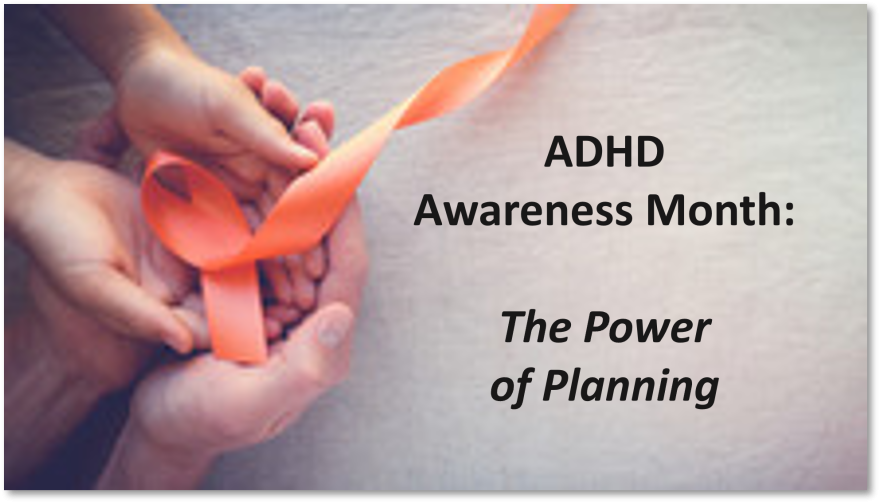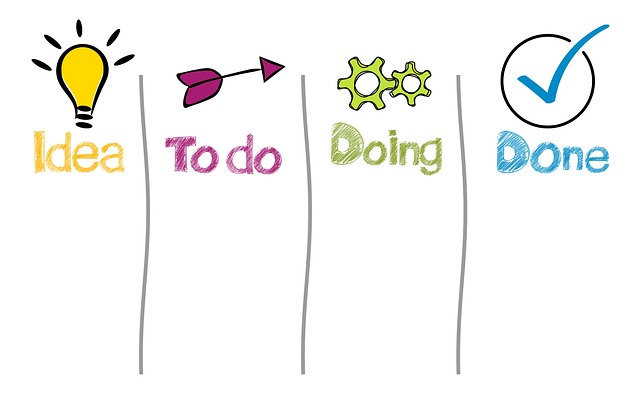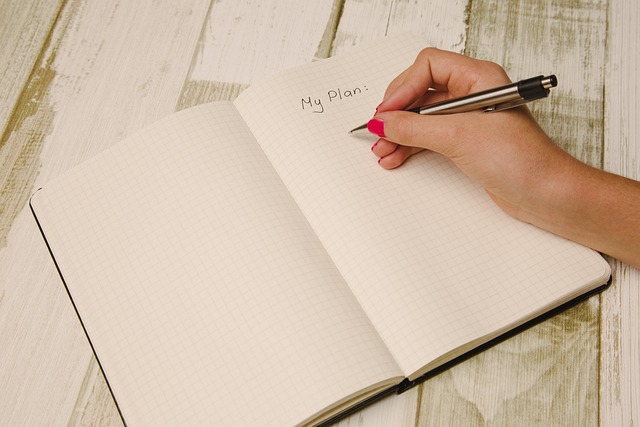|
October marks ADHD Awareness Month, and this year's theme, "Awareness is Key," encourages the ADHD community to "increase awareness and understanding by sharing ADHD information and supports with all who could benefit.” There are fantastic resources that delve into understanding ADHD (for example: ADHD Awareness Month, CHADD, Additude Magazine).

This month I want to highlight a powerful skill that can significantly improve daily life for individuals with ADHD (and all): planning. Yes, planning. “I know people plan… but I love to jump into action head first!” If you like to skip the planning phase please read on. Research shows that a well-crafted plan significantly increases your chances of achieving success - whether it is completing a task or achieving a goal!
Why is Planning Important?
Because it:
- Reduces Overwhelm: Planning breaks down large, daunting tasks into smaller, manageable chunks. This can help reduce feelings of stress and anxiety.
- Improves Focus: When you have a plan, you know what you need to do and in what order. This can help you stay focused and avoid distractions.
- Enhances Self-Esteem: Successfully completing a plan can boost your confidence and self-esteem.
- Reduces Ambiguity and Increases Follow-Through: A clear plan eliminates confusion and helps you stay on track. Research shows that creating specific "if-then" plans can help you overcome obstacles and stay on track.
- Boosts Motivation: Visualizing your progress and checking off milestones can keep you engaged and inspired.
- Saves Time and Increases Productivity: While planning may seem time-consuming, it can actually save you time in the long run. Planning allows you to make the most of your time and energy. By prioritizing tasks and setting deadlines, you can accomplish more in less time.

Tips for Effective Planning:
- Start Small: Begin by planning one or two tasks at a time. As you get more comfortable with planning, you can gradually add more to your schedule.
- Break Down Your Tasks: Divide larger tasks into smaller, manageable chunks to reduce anxiety and clarify your path.
- Use Visual Aids: Create a calendar, to-do list, or mind map to help you visualize and “store” your plans.
- Schedule Action Times: Commit specific times in your calendar for taking action, treating these as non-negotiable appointments.
- Be Flexible: Life can be unpredictable, so be prepared to adjust your plans as needed. As you design your plan spend some time pondering: are there any obstacles that can get in the way? Anticipate challenges and develop strategies to overcome them. This is an important and often forgotten step.
- Track Your Progress: Regularly monitor your advancement and adjust your plan as needed. Reflect on your progress.
- Consider Technology: There are many apps and tools available to help you with planning and organization. Interested? Check this article.
- Celebrate Success: Physically check the item off your list. Cross it out! Reward yourself for completing your plans. This will help you stay motivated and make planning a positive experience.

Planning isn't about micromanaging every detail; it's about equipping your brain with the necessary information to move efficiently toward completing tasks or achieving your goals. It's incredible to see how many of my clients, who once laughed at the idea of planning, have become planning pros! They've found (or designed) unique systems that work for them, and it's inspiring to watch them thrive.
Remember: There’s no one-size-fits-all solution when it comes to planning. It’s like the topic of the best agenda…the best system is the one that you'll actually use and that makes sense to your lifestyle.
Finally, let's commit to learning more and spreading awareness about ADHD, not just during the ADHD awareness month. By sharing information and breaking down misconceptions, we can create a more inclusive and understanding environment for everyone.
With gratitude,
Ana Isabel Sánchez
   
|